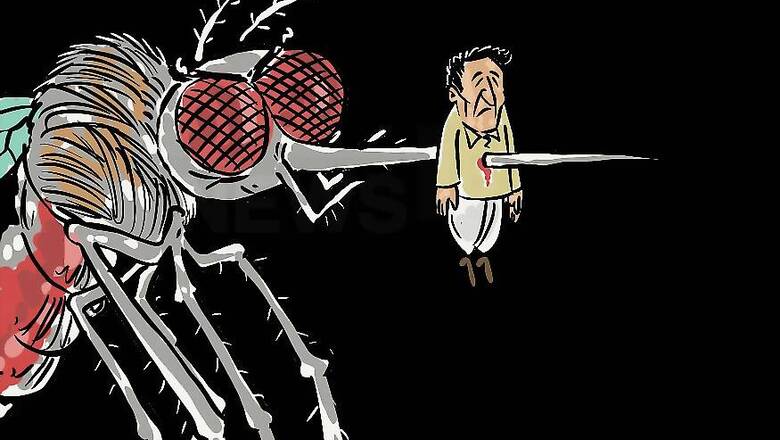
views
organs of the body.
Recent years have seen dengue becoming a public health concern worldwide. Most of the time people are unaware of when they are suffering from the mosquito-borne disease and when they have recovered. That is mostly because people are not aware of the post-dengue complications which can sometimes lead to serious illnesses.
Notably, dengue fever is a mosquito-borne tropical disease caused by the dengue virus with symptoms that typically begin 3 to 14 days after infection. The symptoms include high fever, headache, vomiting, muscle and joint pain, and skin rash.
While recovery generally takes 2 to 7 days, sometimes it develops into severe dengue, also known as dengue haemorrhagic fever (DHF), resulting in bleeding or low levels of blood platelets and
blood plasma leakage, or into dengue shock syndrome.
Transmitted by the Aedes aegypti mosquito, the virus can further trigger immune response after recovery and cause illnesses which would affect the brain, kidney, nerves, heart and other vital
organs of the body.
Notably, some of the dengue symptoms can persist for up to 6 months after dengue haemorrhagic fever.
According to a story published in The Daily Star, in March of 2019, a group of Sri Lankan scientists published an article on Management of Dengue and Post Dengue Complication Syndrome were it
was found that more than half (56.7%) of the study participants reported having many dengue symptoms following symptomatic dengue disease.
Importantly, it provides evidence suggesting that dengue can result in prolonged clinical disease following resolution of infection even after two years of initial infection.
The treatment for post dengue complications often depend on the symptoms being showcased, but the illness can become deadly. Awareness about the disease is one way of making people know about the disease along with regular exercise and maintaining a balanced diet.
The diet for dengue patients includes a lot of fluid, green vegetables and proteins.
Some of the food recommendations to be followed in case of dengue include:
- Inclusion of nutrient-rich fluids like ORS, sugar cane juice, coconut water and fruit juices.
- Inclusion of dairy products in the diet. Eggs, chicken and fish are highly recommended for dengue patients and help combat the virus.
- Partaking of ginger tea due to its medicinal properties as well as pomegranates which help increase blood count and thus help in the recovery of dengue patients.
- Spicy and oily foods are, however, a bug no for patients recovering from dengue fever.



















Comments
0 comment